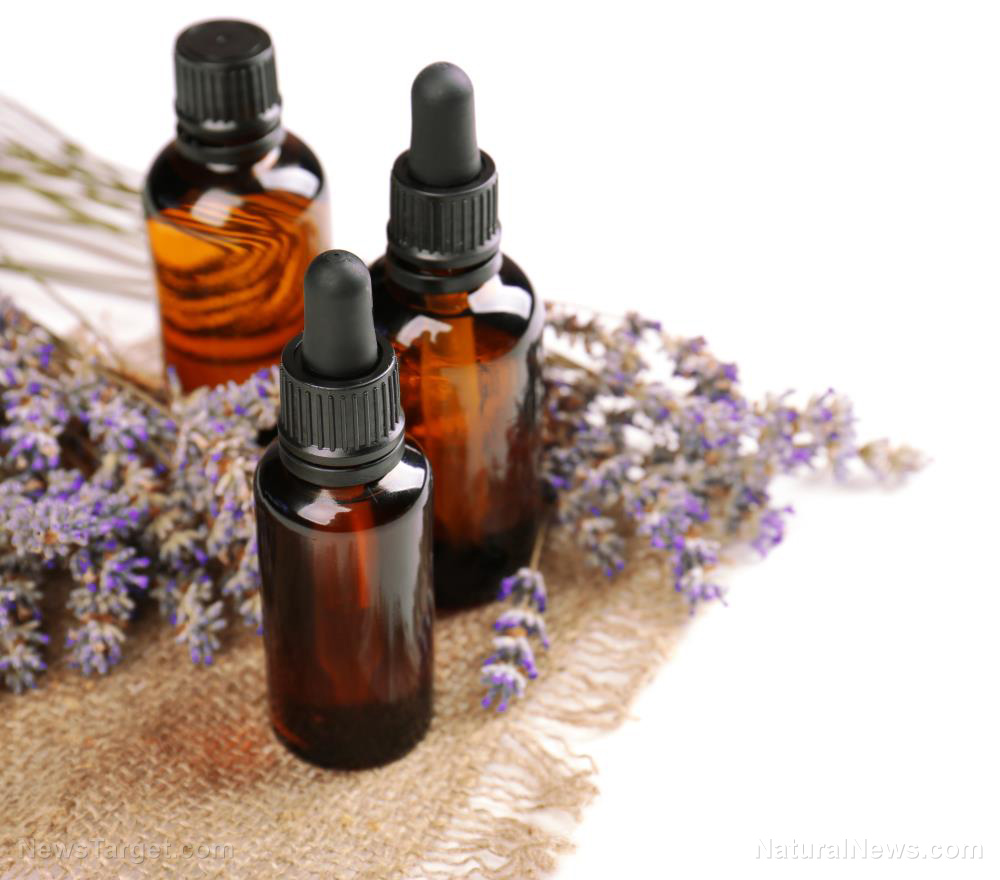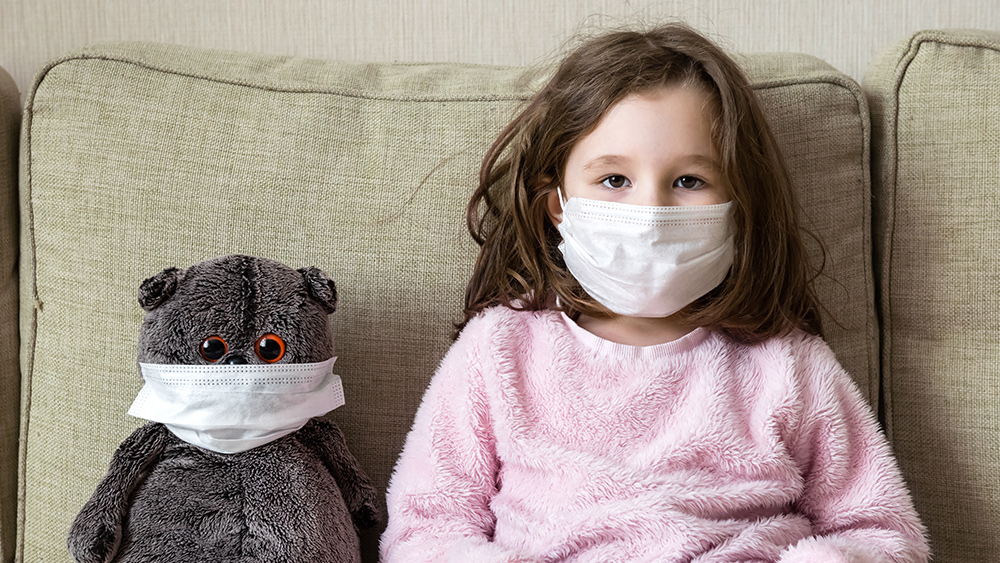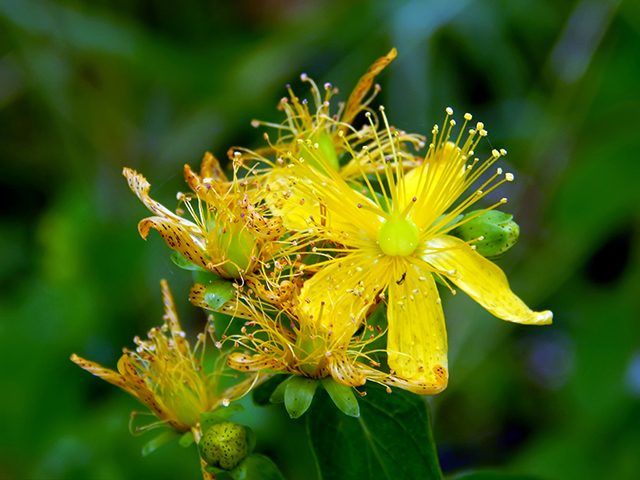Beyond aromatherapy: How to use essential oils for natural healing
11/18/2020 / By Divina Ramirez

Essential oils are highly concentrated plant extracts obtained by distillation. Widely used in alternative medicine, these oils have been used by many cultures as natural remedies for centuries.
Many studies have demonstrated the therapeutic effects of essential oils. Researchers agree that these useful natural products owe their beneficial properties to their abundance of bioactive compounds, which have shown potential in treating a wide variety of health problems.
Medicinal uses of essential oils
Essential oils are considered by many to be potent remedies for a number of ailments. Here are some of the known medicinal uses of various essential oils:
- They relieve headaches – Peppermint and lavender essential oils are prized for their ability to relieve headaches. There is also evidence suggesting that peppermint essential oil is just as effective at relieving pain as over-the-counter painkillers.
- They reduce anxiety – Many essential oils like lavender or orange are hailed for their calming effects on the mind and their ability to reduce anxiety. These oils are often used in aromatherapy to relieve stress and induce relaxation.
- They induce sleep – The stress-relieving effects of essential oils like chamomile and bergamot are said to help people fall asleep faster and improve their sleep quality.
- They treat nausea – Some essential oils, such as lemon, ginger and peppermint, are known for their beneficial effects against nausea and other digestive issues. Lemon essential oil, in particular, can relieve morning sickness in pregnant women.
- They boost energy – While some essential oils help induce sleep, others can stimulate you and give you an energy boost. Examples of these include lemon, cinnamon and peppermint essential oils.
- They fight inflammation – Many active compounds found in essential oils are potent antioxidants that can protect cells from oxidative stress. Some also work as anti-inflammatory agents that can relieve pain by reducing inflammation.
Common application methods
Essential oils can either be inhaled or applied topically. Here are some of the most common methods for using essential oils:
- Diffusing – Essential oil diffusers are great for getting these aromatic oils in the air. These devices are easy to use at home or in your office.
- Inhaling steam – This method involves adding drops of essential oil into a bowl of hot water and inhaling the steam. This is a good alternative if a diffuser is not available.
- Taking a hot bath – Similar to steam inhalation, this method involves adding a few drops of essential oil to your bathwater (hot) and taking deep breaths while you soak in it.
- Rubbing onto the chest – When used as a vapor rub, essential oils can be applied to the chest to help clear the sinuses and ease coughing.
- Massaging into the skin – Essential oils diluted with a milder carrier oil can be massaged into the skin to nourish and moisturize, or to alleviate aches and inflammation.
Most popular essential oils
Essential oils are equipped with their own unique scent and therapeutic properties. The following are the most common essential oils and their known uses: (Related: What are the clinical applications of essential oils?)
- Lavender – for improving sleep quality and reducing anxiety
- Clary sage – for reducing high blood pressure and improving memory
- Peppermint – for reducing fatigue and improving memory
- Orange – for reducing anxiety
- Rosemary – for reducing fatigue, boosting energy and improving cognitive functions
- Cinnamon – for reducing stress and improving concentration
- Lemon – for reducing stress and improving mood
- Eucalyptus – for treating headaches and promoting mental clarity
- Bergamot – for reducing stress and improving mood
- Lemongrass – for reducing anxiety and easing tension
- Chamomile – for inducing sleep and calming nerves
- Jasmine – for improving mood
Potential risks and side effects
Essential oils are generally safe to use. But improper use of essential oils, such as failing to dilute the oil or ingesting it, may cause certain side effects, such as:
- Irritation or burning – Failure to dilute essential oils before topical application can result in a burning sensation. Before applying any essential oil, apply a small amount first to a patch of skin to test for any reactions.
- Headaches – Many essential oils help relieve headaches, but inhaling undiluted essential oils for long periods may cause headaches in some people.
- Breathing difficulties – People with asthma should also watch their use of essential oils as breathing in concentrated fumes could trigger breathing difficulties or full-blown asthma attacks.
Due to their high concentration of potent plant compounds, essential oils should be used with caution and with the guidance of a natural health practitioner.
Read more articles about the therapeutic applications of essential oils at EssentialOils.news.
Sources include:
Submit a correction >>
Tagged Under:
alternative medicine, anxiety relief, aromatherapy, essential oils, herbal medicine, Herbs, mental health, natural cures, natural medicine, Naturopathy, pain relief, remedies, sleep, stress relief
This article may contain statements that reflect the opinion of the author
RECENT NEWS & ARTICLES
Mental.News is a fact-based public education website published by Mental News Features, LLC.
All content copyright © 2018 by Mental News Features, LLC.
Contact Us with Tips or Corrections
All trademarks, registered trademarks and servicemarks mentioned on this site are the property of their respective owners.




















